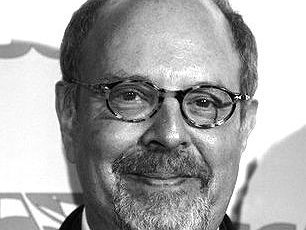What, to you, are the main functions and goals of soundtracks and score music and how would you rate their importance for the movie as a whole?
Well after seeing, No Country For Old Men, that had no score, I thought film scoring was dead, realising that one note of score in that movie would have wrecked it. But then hearing Morricone, T. Newman, Newton Howard, Jerry Goldsmith scores, the movies they scored would be less without their contribution. Just less!
Jerry Goldsmith once asserted that, as a composer, one "can't be visual with the music". How do you see the relationship between image and sound in a movie? How directly are you working with the images in the writing process?
Whether it's sound design or traditional instrumental sounds, the blank canvas is both terrifying and exciting in realising what effect they can have on images. But it's never a specific image that a composer works with, but connective movement of a collection of images that we concentrate on.
Elliot Goldenthal mentioned that while a movie is "going linearly from side to side", you have to talk about film music "vertically". What's your take on this statement?
I think he means the size and scope. When you see a printed film score, you actually see the rise and fall of the musical dynamics and what instruments are being added and subtracted as the piece moves toward its inevitable conclusion.
Scores can either exist entirely of original material or temp-track music. Are these two approaches equal or do you feel as though a soundtrack written especially for a movie is always to be preferred?
Sometimes a temp track auditioned for a movie is used as the final score, like the Colour Purple which had a score by Georges Delarue, from another one of his films! But of course an original score is the first and foremost choice.
People tend to see film music as existing in a time of its own. Would you, on the other hand, say that there such a thing as zeitgeist in film music as well? Are there compositional devices which you don't find appropriate or wouldn't use right now, because they're too closely associated with a particular era?
No! It's all up to the director and composer. Anything that makes a sound. Anything! Regardless if it's white noise or string quartets. It's all fair game.
The balance between visuals, fx and film music is a delicate one. What, from your point of view, determines whether or not it is a successful one?
The mixing crew on the final mix. The better and more experienced those boys are, the better the marriage.
In your opinion, should film music remain connected to the picture it was conceived for or should have it an intrinsic value outside of the movies?
Sometimes very melodic scores work great as stand alone concert pieces. For example look at Out of Africa as opposed to let's say, Altered States (unless you're into modernity).
Usually, it is considered that it is the job of the movie to win over an audience. But watching and listening are also active, rather than just passive processes. How do you see the role of the spectator in the cinematic communication process?
The audience has entrusted the film and its makers to get them "out of themselves" for that two or three hours, and hopefully feel something for the visual and aural experience awaiting them. It is their right and duty if not satisfied, to stand up, face the screen and scream out as loud as possible, "Rubbish, Rubbish you bloody wankers, Never again!"
Please recommend two film music composers to our readers which you feel deserve their attention.



